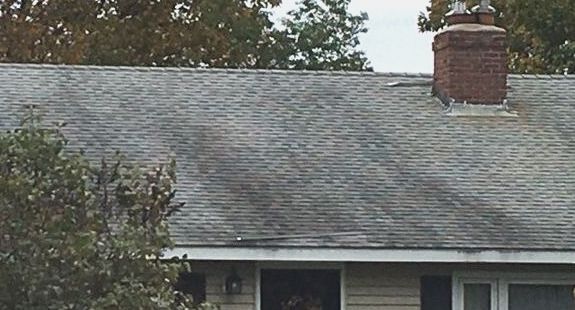Common Causes of Roof Mold and How to Prevent It

Roof mold is a common problem that can lead to serious damage if left untreated.
Mold not only affects the appearance of your roof but also weakens its structural integrity and contributes to health issues.
Understanding the causes of roof mold and how to prevent it can help homeowners protect their investment and maintain a safe living environment.
Common Causes of Roof Mold
- Poor Ventilation
Inadequate airflow in the attic traps moisture, creating a humid environment that promotes mold growth. Proper ventilation helps regulate temperature and reduce excess moisture buildup.
- Excess Moisture and Humidity
High humidity levels, especially in regions with frequent rainfall, contribute to mold formation. Water that accumulates in shingles, gutters, or underlayment provides the perfect breeding ground for mold and mildew.
- Clogged Gutters
When gutters become clogged with leaves and debris, water gets trapped and overflows onto the roof. This prolonged exposure to moisture can lead to mold growth, rot, and leaks.
- Shaded Areas and Algae Growth
Roofs with heavy tree cover or limited sunlight are more prone to mold and algae growth. Shade prevents moisture from evaporating quickly, allowing mold to spread.
- Improper Roof Installation
Poorly installed roofing systems can lead to water pooling and poor drainage, increasing the risk of mold formation. Missing or damaged shingles also allow water to seep into the roof’s structure.
How to Prevent Roof Mold
- Ensure Proper Ventilation
Install soffit and ridge vents to promote airflow in the attic, preventing condensation and moisture buildup.
- Keep Gutters Clean
Regularly clean and maintain gutters to ensure proper water drainage. Consider installing gutter guards to prevent debris accumulation.
- Trim Overhanging Branches
Reducing tree cover near your roof allows more sunlight to reach the surface, preventing prolonged moisture retention.
- Use Mold-Resistant Roofing Materials
Opt for mold-resistant shingles or roofing treatments that inhibit algae and fungal growth.
- Schedule Regular Roof Inspections
Routine inspections can catch early signs of mold and moisture damage, allowing for prompt repairs before the problem worsens.
- Remove Mold Promptly
If mold is already present, use a mixture of water and bleach to clean affected areas safely. For severe cases, consult a professional roofer to assess and resolve the issue.
Conclusion
Mold growth on roofs can cause significant damage and health concerns if not addressed properly. By maintaining proper ventilation, keeping gutters clean, and preventing moisture buildup, homeowners can protect their roofs from mold and extend their lifespan. Regular inspections and prompt action are key to preventing costly repairs and ensuring a safe, mold-free home.
Contact us today for more information.
Follow us at Facebook

